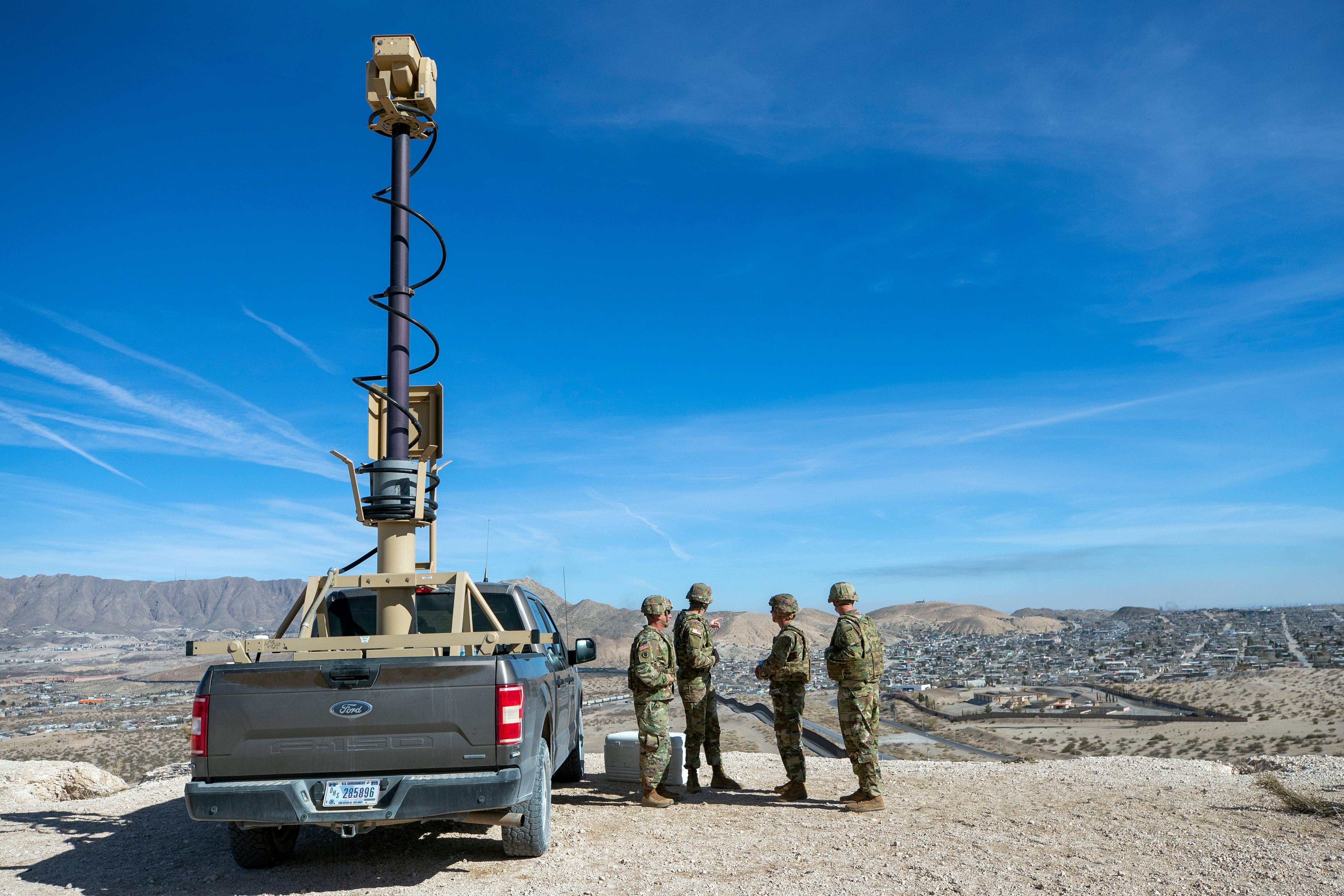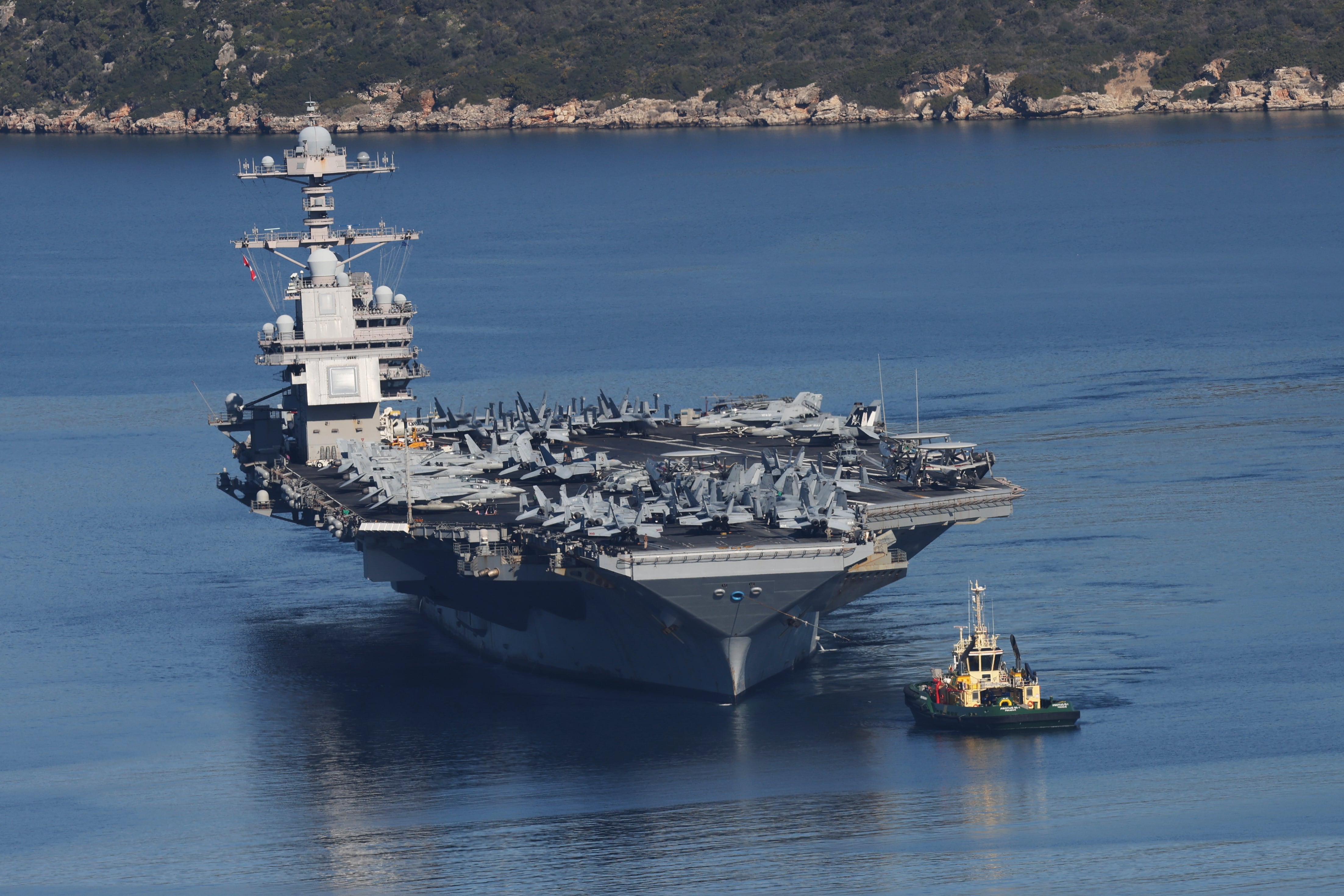In his first wide-ranging interview since taking the helm at the U.S. Naval Academy a month ago, Vice Adm. Ted Carter talked with reporters about character development, the current generation of midshipmen, the challenges of gender integration, academy traditions and more.
Carter, a 1981 grad, brings substantial fleet experience to the academy superintendent post. A career flight officer, he holds the Navy's record for carrier landings and has served as a squadron and carrier commanding officer, and the last head of the Enterprise carrier strike group. He also helped stand up the 21st Century Sailor office in 2013 as its first commanding officer before moving on to serve a year as president of the Naval War College in Newport, Rhode Island.
He's taking lessons learned into his new job: helping to shape the Navy's future officers.
Carter sat down with reporters in his office in Annapolis, Maryland, on Aug. 21. Questions and answers have been edited for brevity.
Q. One of your priorities is character development. What is the academy doing to address ethics or misconduct issues?
A. I can tell you that a lot of our programs are already well underway. Now, I will tell you that we are continuing to look at them. I want to make sure that they're relevant and agile enough to fit into today's current society. As I've looked at our initial training set, just what the plebes went through the last seven weeks, it's a phenomenal education and training experience.
All of the rules and regulations and policies that I inherited are still in place. In terms of off-campus rental houses, there was already a policy put in place that that was a red line, and that is still in place. And that is a communication we've had with the sponsors, the parents, as well as the unofficial sponsors we have here in town, that that is something they need to help us out with.
Q. The number of female midshipmen is higher than it's ever been: 25 percent of the plebe class. At the same time, the Navy has continued to encounter issues around the treatment of women, whether inappropriate behavior in the Blue Angels or a sub CO losing his job over domestic abuse allegations. Does the Navy need to better address this?
A. When you start getting into these problems of integrating men and women in the workplace, when you look at what's being presented commercially, and you look at what's being presented on the Internet and social media, I would argue that the natural bias of the commercial world does not support this effort.
There are biases in our young people, particularly before they come in, that we have to continually work against. Now, are we perfect? No. Are we getting a lot better? Absolutely.
There's no doubt in my mind that women in our country are the rising gender, and we need to pay attention to that. We need to figure out, not just what the numbers are, but how do we get the right women to want to come and serve their country and come to an institution like the United States Naval Academy. That's something that we're going to continue to work on, and I'm happy with what I'm seeing coming in the door right now.
Q. What are your thoughts about the generation that's here now? How are they in terms of coming into the military and embracing military concepts?
A. This generation we have in our ranks right now — the millennial generation — was significantly affected by the events of 9/11 in 2001. And many of them wanted to join something bigger than themselves, whether they joined military service or some other higher calling.
Now, they get a little bit of a bad rap. Some people think it's the group that everybody got a trophy, their parents hovered over them, took care of them, that they're soft and weak. I have found that it's the opposite. It's the most resilient generation we've had, going back to the Greatest Generation in World War II.
Now, that said, they also want to understand why they're doing what they're doing. So this is not the generation that you just give them a direct order and, like a Robotron, they do it. If you can explain to this generation why they're doing what they're doing, and you get buy-in, just stand back and watch.
Having said all that, we had better understand that right around the corner is another generation, born after 2000. They are about to become 17 years old in a few years and ready to enter an institution like this. And they're going to be different. They will have not been affected by 9/11 and they will have been affected by a recession.
Q. What is the current state of cyber education, and where do you see it going?
A. It's new; it's got a lot of interest from the brigade. There are two courses that we teach across the brigade that get everybody to a baseline. But I believe that in the next five to 10 years, cyber will be not just something that we talk about as a domain, it will literally be the air that all of our systems and our other domains live in and around.
We'll take a look at what other majors we will merge into that, that will combine into the overall cyber major. So for example, computer science is taught as a separate major right now. We're looking at — we haven't done it yet — how we merge the two.
Q. The football team is moving to the western division of the American Athletic Conference. Will some of the travel to schools further away affect the players academically, and how will you balance that?
A. Most of that travel [involves] crossing a time zone, two at the most. Yes, there may be a little bit more travel, but I will tell you that for every travel event any of our sports teams go on, their academic schedule is scrutinized very closely. They do not miss any academic time. And if they do — because of the travel to a bowl game or something — all those are made up. So there are no shortcuts in that program.
Now, we're going to live this starting after next year, and we'll keep an eye on it.
Q. Are there any changes you'd like to make to some Naval Academy rites, such as the Herndon climb or throwing coming commanders into the river for Final Fall Parade?
A. I don't have anything earth-shattering here to tell you. The Naval Academy's been around for 169 years, dating back to 1845. I was here when we brought the first group of women here. They came in 1976, I showed up in 1977.
I will say that we need to be ever mindful of what used to be an all-male organization steeped in that. We're no longer that organization. We just need to make sure that what we do here is relevant for everybody who attends here. So I don't have any traditions or anything where I'm changing words to a song or changing titles, or even some of the traditions just yet, but we'll keep our eye open for those and make sure that what we do here is fair to everyone.
Q: Where are you seeing the most popularity in service selection?
A. If you look at our statistics, 94 percent of 1,068 graduates [last year] got their first or second choice. Roughly speaking, about one third of the officer corps that goes Navy is going to go surface warfare, because that's what the need of the fleet is. And about one quarter of the class is going to go Marine Corps.
Clearly, when you have high profile events that happen in the world, and movies — you know, I think back to the "Top Gun" movie era, I mean, everybody wanted to go aviation then — not surprisingly, a lot of people want to go Navy SEAL right now.
Meghann Myers is the Pentagon bureau chief at Military Times. She covers operations, policy, personnel, leadership and other issues affecting service members.




